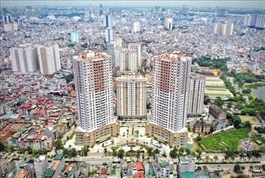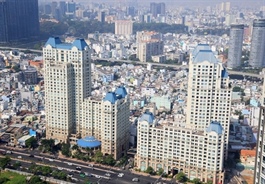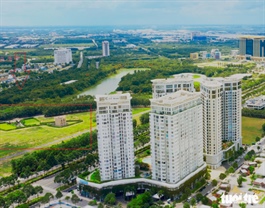Japanese investors catch the eye in real estate sector
Japanese investors catch the eye in real estate sector
Many domestic real estate developers are expecting to cooperate with Japanese investors as strategic partners to receive capital and share the management capacity.

In mid-December, CEO Group, GP Invest, and Sovico Group participated in a business matching event with a delegation of Japanese companies to discuss collaboration opportunities.
The Japanese delegation combined 10 real estate developers and smart solution providers, including Daiwa House Industry, Daibiru Corporation, Creed Corporation, and Tekko Building. These companies are looking for domestic partners to develop projects, such as complex facilities, detached houses for the high-end and middle classes, condominiums for the high-end and middle classes, and also houses and apartments for the low and middle classes, among others.
In recent times, real estate companies have said they are facing difficulties in accessing capital following the tightening of loan regulations.
Nguyen Quoc Hiep, chairman of GP Invest said even at present, when the lending rate is at a low level, property firms are reserved in approaching loans from banks because the low lending rate is applied for short-term loans.
“Meanwhile, property projects need middle-term and long-term loans, at which they just enjoy the low lending rate for the first year. Thus, we see that mobilising foreign capital is an effective solution,” Hiep said. His company has just done so for four ventures.
“The Japanese parties expressed their intention to cooperate with GP Invest in single projects initially. If everything goes smoothly, they may become our strategic partners, who are not only the capital sponsors but also join the management board. Cooperating with Japanese partners will help GP Invest to improve management and operations,” Hiep added.
The representatives of CEO Group and Sovico also expect to gain new partners thanks to the meeting.
Nishimura Naoki, deputy director of the International Affairs Office at City Bureau, the office is under Japan’s Ministry of Land, Infrastructure, Transport and Tourism, told VIR, “Japanese companies see the potential of the Vietnamese real estate market. They have the advantage in capital, technology, and management skills. Meanwhile, Vietnamese real estate developers have advantages in land funds and flexibility in completing the administrative procedures. Making use of the advantages of the two parties will create high-quality products with competitive prices.”
For the past year, many Japanese investors have co-ordinated with Vietnamese counterparts to develop property projects in the country.
North Hanoi Smart City Development Investment Company, a consortium between Sumitomo and BRG Group, started construction of a $4.2 billion smart city in Hanoi in November. The project is expected to take nine years to complete in five phases. The first four phases involve planting trees and building homes, schools, parking lots, and other structures. The last phase, to be completed from 2030 to 2032, will involve the construction of certain highlight structures, including a mall and a 108-story financial centre.
Elsewhere, Mitsubishi has cooperated with ¬Vietnamese property developer Bitexco to create 240 low-rise housing units and two high-rise condominiums out of a proposed total of more than 1,000 low-rises and 17 high-rises at The Manor Central Park project, also located in the capital.
One analyst told VIR that, in the upcoming time, the capital inflow from the Japanese into the real estate sector may increase thanks to the weakening Japanese yen. The country’s real estate lending conditions are relatively easy, while the loan-to-value ratio of real estate is at 70 per cent and interest costs only fluctuate around 1 per cent. Thus, Japanese real estate developers can take advantage of low lending rates to get loans to foster their investment abroad, including in Vietnam, he said.

























